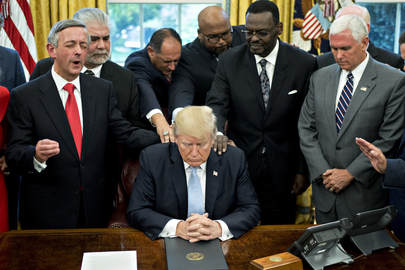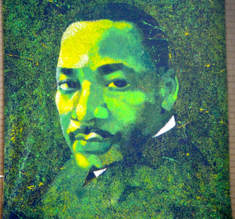 by Evan Kuehn One of the virtues central to the decade in American public life between Barack Obama’s The Audacity of Hope and the end of his presidency is that of empathy. In a commencement speech to Northwestern University given just before he announced his candidacy for president, Obama famously spoke of an “empathy deficit,” and emphasized the importance of “the ability to put ourselves in someone else’s shoes; to see the world through those who are different from us.” He would carry this theme consistently through his administration, mentioning empathy as an important criterion for a Supreme Court nominee, and in 2016 reiterating its value in a commencement speech to Howard University: “we must expand our moral imaginations to understand and empathize with all people who are struggling.”
1 Comment
 David's essay "Evangelical Support for Trump as a Moral Project: Description and Critique" is the featured article in the January issue of the Religion and Culture forum. The article can be found here. From the abstract: "The rise of Donald J. Trump to the presidency has caused a crisis of misunderstanding in American politics. From the perspective of his critics, his ethos, rhetoric, and politics are so self-evidently evil, they cannot imagine how anyone could support him from anything other than depravity or ignorance. This essay makes the case that there is a deeper meaning beyond this apparently obvious one, and realistic political analysis requires that we recognize it. Barr argues that many American evangelical Christians support President Trump as an expression of a positive moral vision for American government and society. Drawing on the work of political scientist Benjamin Lynerd, Barr shows the deep roots of the affinity for Trumpism found in the political theology of American evangelicalism. Those affinities explained, it concludes with a turn to the thought of Reinhold Niebuhr and current research in the sociology of religion to show the errors and perils that result in and from it." The Religion & Culture Forum is a digital publication of the Martin Marty Center for the Advanced Study of Religion at the University of Chicago Divinity School. It hosts conversations about the relationship between scholarly work on religion and global public cultures.  By Russell Johnson for Martin Luther King Day, 2018 Even as an elementary school student, I knew Martin Luther King Jr. took a stand for integration. But what “integration” meant for King is something I’ve only recently begun to understand. Integration must first be distinguished from inversion. King was not interested in merely transferring power from whites to blacks while keeping the exploitative power structure unchanged. An unjust society cannot be integrated, regardless of the color of those in charge. |
Archives
September 2020
Categories
All
|
 RSS Feed
RSS Feed